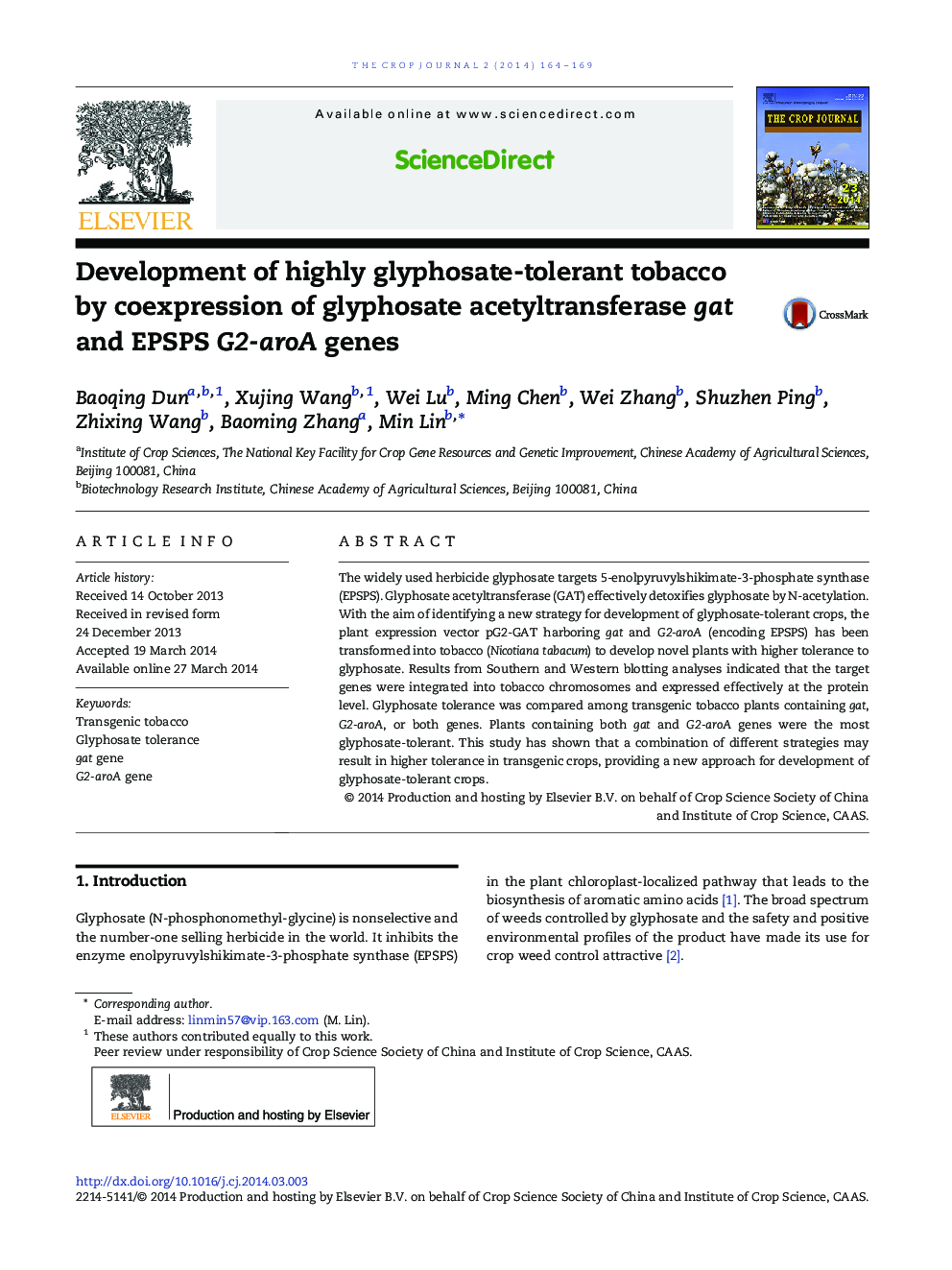| Article ID | Journal | Published Year | Pages | File Type |
|---|---|---|---|---|
| 2079527 | The Crop Journal | 2014 | 6 Pages |
The widely used herbicide glyphosate targets 5-enolpyruvylshikimate-3-phosphate synthase (EPSPS). Glyphosate acetyltransferase (GAT) effectively detoxifies glyphosate by N-acetylation. With the aim of identifying a new strategy for development of glyphosate-tolerant crops, the plant expression vector pG2-GAT harboring gat and G2-aroA (encoding EPSPS) has been transformed into tobacco (Nicotiana tabacum) to develop novel plants with higher tolerance to glyphosate. Results from Southern and Western blotting analyses indicated that the target genes were integrated into tobacco chromosomes and expressed effectively at the protein level. Glyphosate tolerance was compared among transgenic tobacco plants containing gat, G2-aroA, or both genes. Plants containing both gat and G2-aroA genes were the most glyphosate-tolerant. This study has shown that a combination of different strategies may result in higher tolerance in transgenic crops, providing a new approach for development of glyphosate-tolerant crops.
